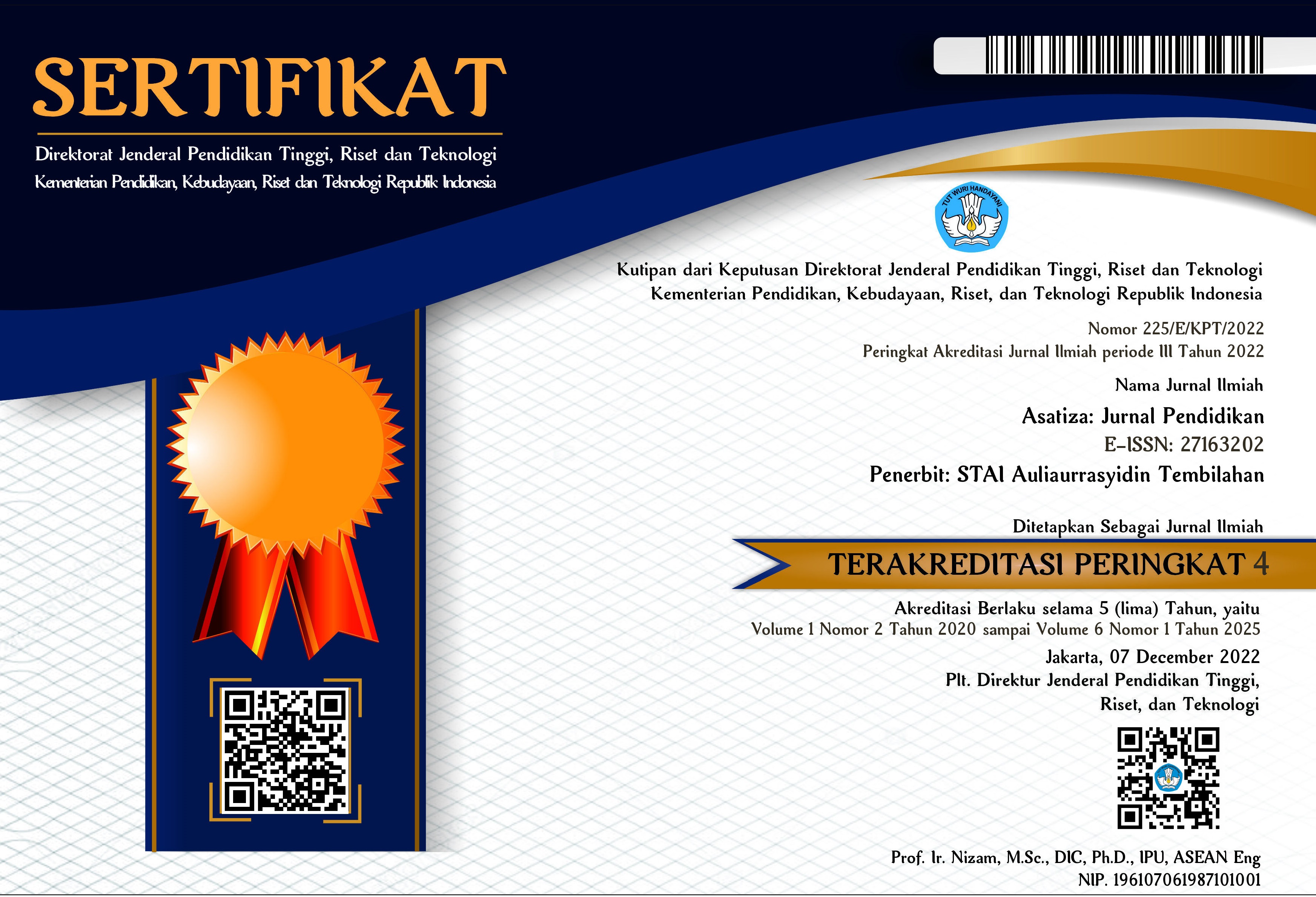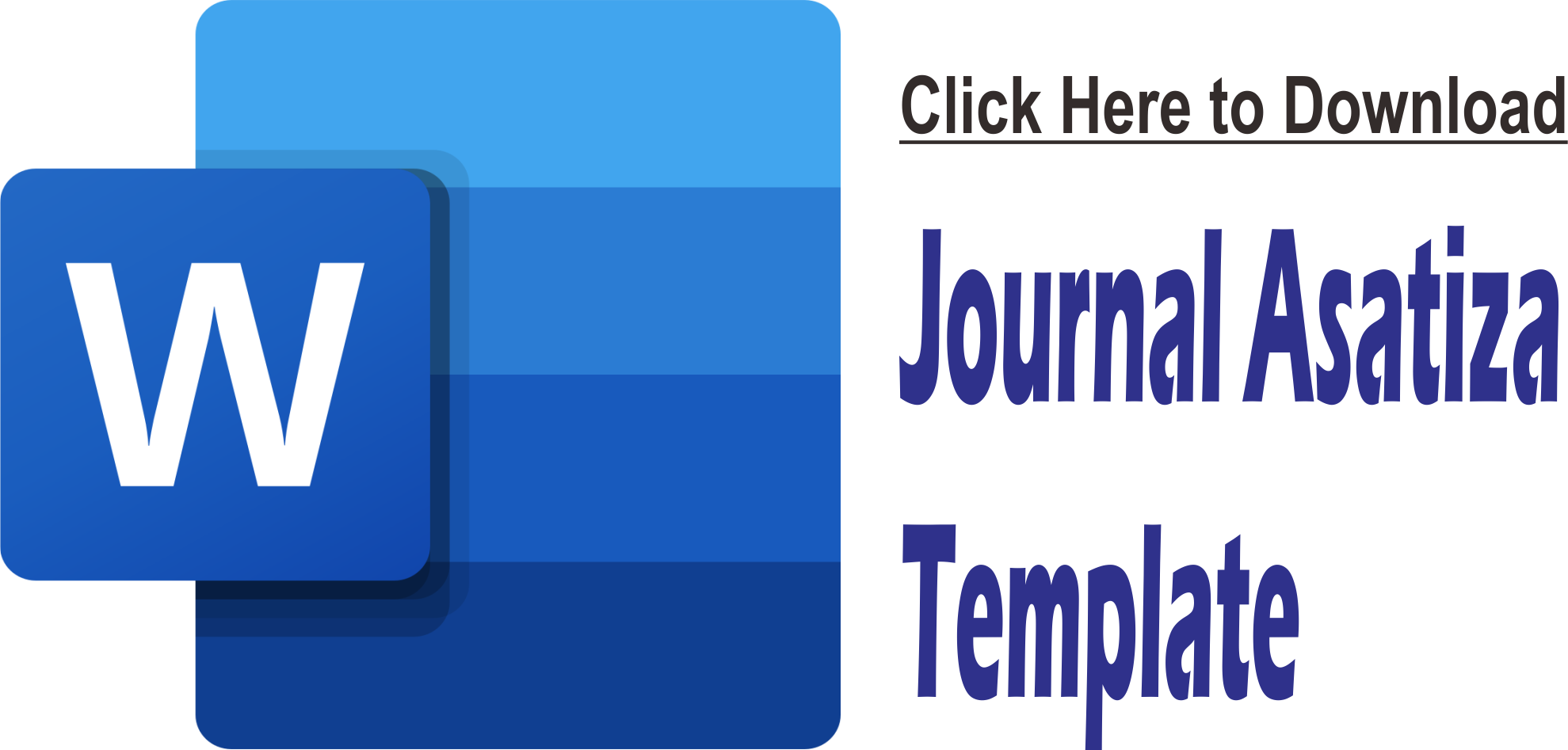Model Pembelajaran Project Based Learning Berbasis Instagram melalui Pendekatan Mobile Learning dalam Membantu Mahasiswa Memahami Tugas Akhir
DOI:
https://doi.org/10.46963/asatiza.v5i1.1325Keywords:
Instagram, Mobile Learning, Project Based LearningAbstract
M-Learning allows easier and wider access to learning. The combination of images, video, audio, and interactive interaction allows for a more engaging learning experience and allows students to be actively involved in learning. The purpose of this study is to describe the application of the steps of the Instagram-based project-based learning model with a Mobile Learning approach in helping students understand the final project. This research is classroom action research (PTK). There are two cycles in this class action research. In each cycle the learning process has improved according to the predetermined assessment aspects. Group 4 had a considerable percentage change of 22% where the first cycle score of groups 4 was 64.6 and increased in cycle II to 79. The highest scores in cycle II were in groups 1 and 5 where each percentage change was 12% in group 1 and 16% in group 5. Combining the popularity of Instagram with a project-based learning approach can help students learn research methodology courses in a practical, relevant way and allow students to learn anytime and anywhere.
Downloads
References
Amaliah, N., Galuh Try Astuti Ibrahim, & Phika Ainnadya Hasan. (2022). Pengaruh Penerapan Model Pembelajaran Project Based Learning (PjBL) Berbantu Instagram (IG) Terhadap Hasil Belajar Peserta Didik Pada Materi Sistem Respirasi Kelas XI MIA SMA Negeri 2 Majene. BIOMA: Jurnal Biologi Dan Pembelajarannya, 4(1). https://doi.org/10.31605/bioma.v4i1.1585
Anazifa, R. D., & Djukri. (2017). Project- based learning and problem- based learning: Are they effective to improve student’s thinking skills? Jurnal Pendidikan IPA Indonesia, 6(2). https://doi.org/10.15294/jpii.v6i2.11100
Criollo-C, S., Guerrero-Arias, A., Jaramillo-Alcázar, Á., & Luján-Mora, S. (2021). Mobile learning technologies for education: Benefits and pending issues. Applied Sciences (Switzerland), 11(9). https://doi.org/10.3390/app1109411
Guo, P., Saab, N., Post, L. S., & Admiraal, W. (2020). A review of project-based learning in higher education: Student outcomes and measures. International Journal of Educational Research, 102. https://doi.org/10.1016/j.ijer.2020.101586
Maros, M., Korenkova, M., Fila, M., Levicky, M., & Schoberova, M. (2021). Project-based learning and its effectiveness: evidence from Slovakia. Interactive Learning Environments. https://doi.org/10.1080/10494820.2021.1954036
Purba, R. A., Ambiyar, ., & Verawardina, U. (2021). Deteksi Mahasiswa Yang Dapat Menyusun Tugas Akhir dengan Metode Visekriterijumsko Kompromisno Rangiranje (VIKOR). Techno.Com, 20(2). https://doi.org/10.33633/tc.v20i2.4360
Salehudin, M., Hamid, A., Zakaria, Z., Rorimpandey, W. H. F., & Yunus, M. (2020). Instagram user experience in learning graphic design. International Journal of Interactive Mobile Technologies, 14(11). https://doi.org/10.3991/ijim.v14i11.13453
Salehudin, M., Sarimin, D. S., Rondonuwu, R. H. S., Yunus, M., & Safiah, I. (2020). Using instagram to support creative learning and project based learning. International Journal of Advanced Science and Technology, 29(5). http://sersc.org/journals/index.php/IJAST/article/view/13880
Seta, H. B., Theresiawati, Afrizal, S., & Hidayanto, A. N. (2022). Analysis Of A Mobile Learning Adoption Model For Learning Improvement Based On Students’ Perception. Journal of Information Technology Education: Research, 21. https://doi.org/10.28945/4955
Sophonhiranrak, S. (2021). Features, barriers, and influencing factors of mobile learning in higher education: A systematic review. Heliyon, 7(4). https://doi.org/10.1016/j.heliyon.2021.e06696
Swari, F. N. I., Wirahayu, Y. A., Sahrina, A., & Selviana, N. (2022). Pengaruh model pembelajaran Project Based Learning (PjBL) berbantuan instagram terhadap kemampuan berpikir kreatif siswa pada mata pelajaran Geografi. Jurnal Integrasi Dan Harmoni Inovatif Ilmu-Ilmu Sosial (JIHI3S), 2(11). https://doi.org/10.17977/um063v2i11p1132-1141
Syukriya, A. U. (2019). Implementasi PjBL dengan Media Instagram pada Keterampilan Menulis Bahasa Arab di SMA Islam PB Soedirman 1 Bekasi. Prosiding Konferensi Nasional Bahasa Arab V.
Uther, M. (2019). Mobile learning—trends and practices. Education Sciences, 9(1). https://doi.org/10.3390/educsci9010033
Yudihartanti, Y. (2017). Analisa Korelasi Mata Kuliah Penelitian Dengan Tugas Akhir Menggunakan Model Product Moment. Jurnal Ilmiah Komputer, 13(2). https://doi.org/10.35889/progresif.v13i2.269
Yuliandini, S., Suwono, H., & Sueb, S. (2021). Pengaruh project-based learning berbantuan instagram terhadap literasi lingkungan dan hasil belajar kognitif. Jurnal MIPA Dan Pembelajarannya, 1(1). https://doi.org/10.17977/um067v1i1p14-24
Downloads
Published
Issue
Section
License
Copyright (c) 2024 Destri Yaldi; Romi Kurniadi

This work is licensed under a Creative Commons Attribution-ShareAlike 4.0 International License.
Authors who publish with this journal agree to the following terms:
1. Copyright on any article is retained by the author(s).
2. The author grants the journal, right of first publication with the work simultaneously licensed under a Creative Commons Attribution shareAlike 4.0 International License that allows others to share the work with an acknowledgment of the work’s authorship and initial publication in this journal.
3. Authors are able to enter into separate, additional contractual arrangements for the non-exclusive distribution of the journal’s published version of the work (e.g., post it to an institutional repository or publish it in a book), with an acknowledgment of its initial publication in this journal.
4. Authors are permitted and encouraged to post their work online (e.g., in institutional repositories or on their website) prior to and during the submission process, as it can lead to productive exchanges, as well as earlier and greater citation of published work.
5. The article and any associated published material is distributed under the Creative Commons Attribution-ShareAlike 4.0 International License











2.png)



